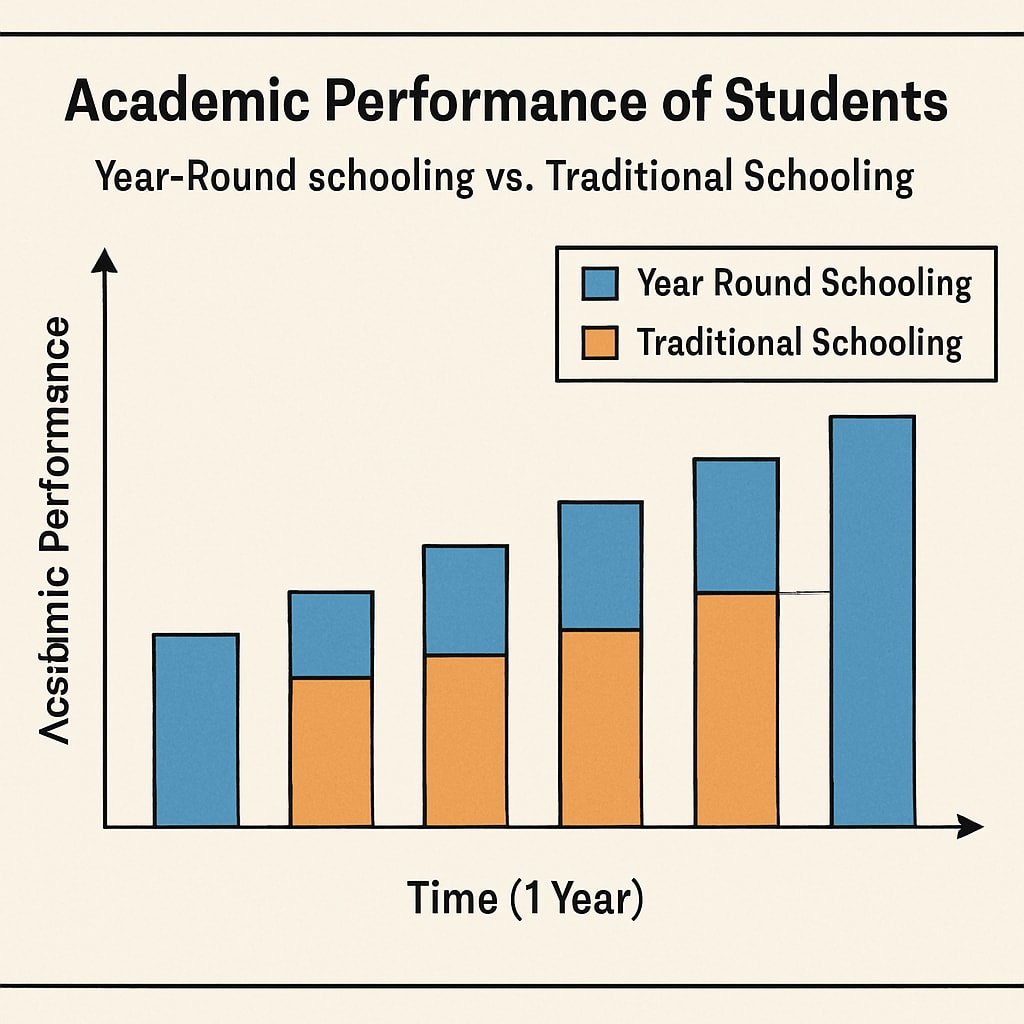Year-round schooling, which replaces the traditional long summer vacation with shorter, consistent breaks throughout the year, is gaining attention for its potential to enhance knowledge retention. This alternative school calendar effectively tackles the issue of “summer learning loss,” a phenomenon where students forget a significant portion of the material learned during the previous school year. By offering a balanced and well-paced learning rhythm, year-round schooling provides students with a more sustainable way to retain knowledge and improve academic performance.

Understanding Summer Learning Loss
Summer learning loss, sometimes referred to as “summer slide,” is a widespread issue in traditional education systems that rely on long summer breaks. Studies have shown that students can lose up to two months of academic progress in core subjects like math and reading during extended vacations. This setback disproportionately affects students from disadvantaged backgrounds who may lack access to educational resources during the summer months.
Year-round schooling, with its shorter and more frequent breaks, minimizes the risk of prolonged periods without academic engagement. As a result, students are less likely to experience significant knowledge erosion.
The Benefits of Year-Round Schooling
Year-round schooling is designed to replace the traditional “nine months of school, three months off” model with a more evenly distributed schedule, such as “one week off after every five weeks of learning.” This innovative approach offers several key benefits:
- Consistent Learning Cycles: Frequent breaks ensure that students can recover and recharge without losing the momentum of their studies.
- Reduced Stress: A balanced schedule helps prevent burnout, enabling students to maintain focus and enthusiasm for learning.
- Improved Retention: Shorter breaks reduce the likelihood of forgetting previously learned material, ensuring a smoother transition into new lessons.
- Greater Equity: Students from diverse socioeconomic backgrounds benefit from year-round schooling by maintaining access to structured learning opportunities throughout the year.

Challenges and Considerations
While year-round schooling has clear advantages, it is not without challenges. For instance, families accustomed to traditional school calendars may find it difficult to adjust their vacation plans. Additionally, schools must adapt their facilities and staff schedules to accommodate year-round operations.
However, many educators argue that the long-term benefits—such as improved academic outcomes and reduced summer learning loss—outweigh these logistical challenges. Communities implementing year-round schooling often report positive feedback from students and parents alike.
Conclusion: A Sustainable Path to Academic Success
Year-round schooling offers a promising solution to the persistent problem of summer learning loss. By redistributing the school calendar into shorter, consistent cycles, this model ensures that students retain knowledge more effectively while enjoying a balanced and less stressful learning experience. As education evolves to meet the needs of modern learners, year-round schooling may become a cornerstone of sustainable academic success.
If you’re interested in learning more about the concept of year-round schooling and its impact, check out resources on Year-round school on Wikipedia or explore educational insights on Year-round schooling on Britannica.
Readability guidance: This article uses short paragraphs, clear headings, and concise lists to ensure an easy-to-follow structure. Transitions like “however,” “therefore,” and “for example” are used to maintain flow and coherence throughout.


